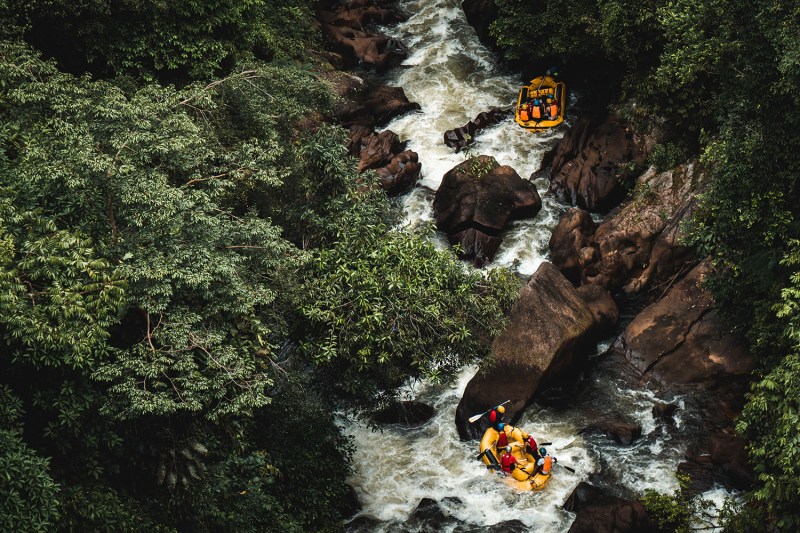
Somehow, for almost 20 years, Survivor has convinced audiences of the “impossibility” of surviving on desert islands where people already live. The Amazing Race upped the ante by challenging contestants with legitimately difficult tasks around the globe, often in near-impossible timeframes. Still, when the shows’ teams include 60-something homemakers, it’s hard to imagine either is really that difficult. If neither is challenging enough for you, National Geographic is looking to take the concept of adventure competition to a whole new level for 2020.
From the producers of The Amazing Race comes National Geographic’s eight-part series Race to the Center of the Earth. They promise this to be unlike any other adventure series on TV. Four teams of three contestants each will be dropped at different corners of the globe with no clue where they are. Each team will race toward a single buoy in the center of the ocean. Inside will be a winner-take-all cash prize of $1 million. The nonstop race will demand mental fortitude, survival savvy, and physical endurance through some of the world’s toughest terrain, including jungles, deserts, mountains, rivers, arctic tundra, and busy cities.
Executive Vice President of Unscripted Entertainment for National Geographic Networks, Geoff Daniels, told Deadline: “Unlike other competition formats, Race to the Center of the Earth will combine the grittiness of a survival show with the cinematic style of a feature film action-thriller dropping viewers into the middle of a heart-pounding journey unlike anything ever made for television.”
Producers are keeping the full details under wraps, but they’re quick to point out that this is a race that’s not for the faint of heart. It’s a bit like an ultra-endurance version of the Global Scavenger Hunt that we covered in 2018, but with a whole lot more cash at stake. It will be a grueling, multi-week adventure race designed to push even the heartiest explorers to their limits. Beyond sheer physical and mental fitness, contestants are expected to have certifications or memberships related to scuba diving, rafting, skydiving, outdoor survival, and the like.
Applications for the Race to the Center of the Earth contest are now open. Applicants will need to answer two dozen questions, including typical personal information, plus details about who they’d like to race with and their relationship to their teammates. The most significant bit, however, is convincing the show’s producers of a compelling reason why viewers would want to root for their team. Finally, a brief video is required so the producers can gauge the applicants’ onscreen presence (or lack thereof).
Before gearing up for your own race to the center of the Earth, check out our roundup of must-have adventure racing gear and tips from adventure competition pros Team NorCal.



